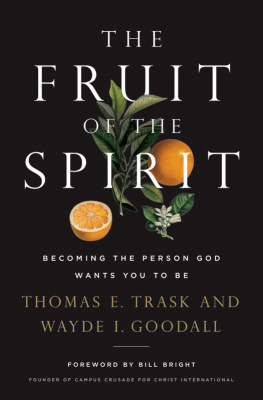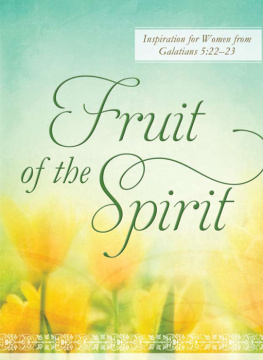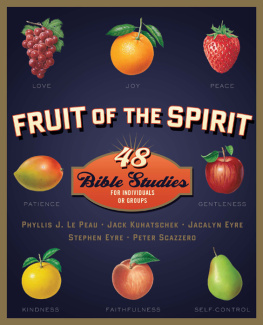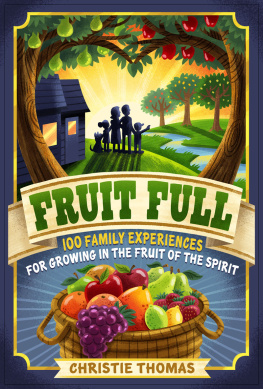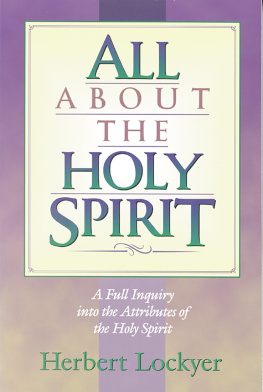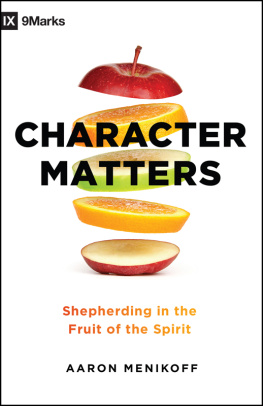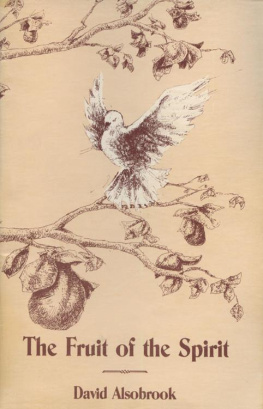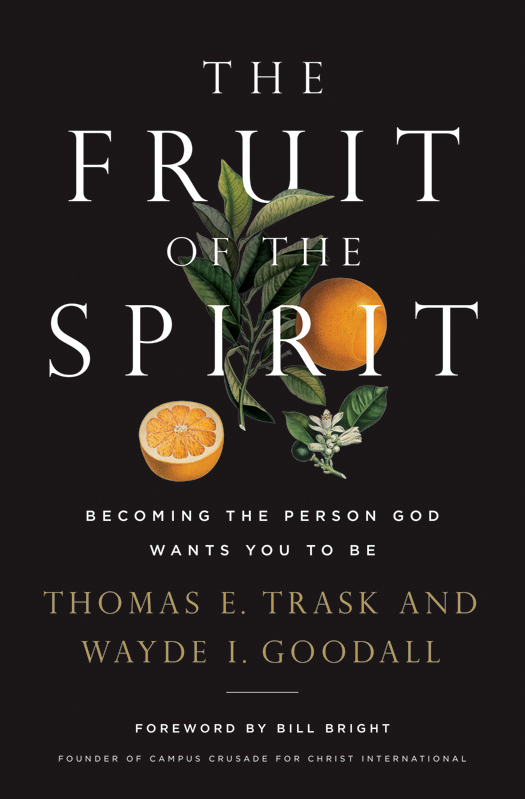CONTENTS
Guide
W hile doing premarital counseling in our church, I asked one young, optimistic couple, What vows do you intend to say to one another in the ceremony? As a pastor I had sometimes permitted couples to write their own vows if they were vows of commitment and honored Gods standards for marriage. They said, We have only adjusted the traditional marriage vows to be a little more contemporary. Let us read them to you.
Their vows seemed fine until they got to the final line of commitment: For richer or poorer; in sickness and in health; until we no longer love each other.
I said, Hold it. What do you mean, Until we no longer love each other? They said, Well, couples sometimes fall out of love, and they should not be required to remain married and unhappy for the rest of their lives. Everyone has the right to be happy.
At first I was surprised, but then I thought about it and realized that society had subtly gotten to them; the lack of commitment had become part of their thinkingeven on what probably would be the second most critical decision of their lives (the first being their commitment to Christ). Obviously, I needed to continue the premarital counseling sessions to explain Gods plan for lifelong loving and commitment.
In Letters to an Unborn Child, David Ireland wrote to the child in his wifes womb partly because he knew that he may never see the child. While his wifes pregnancy developed, David was dying of a crippling neurological disease. He wrote in one of his letters,
Your mother is very special. Few men know what its like to receive appreciation for taking their wives out to dinner when it entails what it does for us. It means that she has to dress me, shave me, brush my teeth, comb my hair, wheel me out of the house and down the steps, open the garage and put me in the car, take the pedals off the chair, stand me up, sit me in the seat of the car, twist me around so that Im comfortable, fold the wheelchair, put it in the car, go around to the other side of the car, start it up, back it out, get out of the car, pull the garage door down, get back into the car, and drive off to the restaurant.
And then, it starts all over again; she gets out of the car, unfolds the wheelchair, opens the door, spins me around, stands me up, seats me in the wheelchair, pushes the pedals out, closes and locks the car, wheels me into the restaurant, then takes the pedals off the wheelchair so I wont be uncomfortable. We sit down to have dinner, and she feeds me throughout the entire meal. And when its over she pays the bill, pushes the wheelchair out to the car again, and reverses the same routine.
And when its overfinishedwith real warmth shell say, Honey, thank you for taking me out to dinner. I never quite know what to answer.
What an example of courageous giving and self-sacrificing love Davids wife, Joyce, provides us. She clearly understands and lives out love.
The Bible tells us that God is love (1 John 4:16). Thus it is no surprise that the first aspect of the fruit of the Spirit that is mentioned is love. For humans, perhaps, there is no greater power in this world than to act in Gods love. Billy Graham has said, Indeed, we may say that love for others is the first sign that we have been born again and that the Holy Spirit is at work in our lives.
In Christ we are connected to the greatest love, the absolute source of pure, unadulterated love. If we walk in fellowship with him, we cannot help but be reminded of how to love people with our words, deeds, and actions. In fact, without Christ it is impossible to love people this way. Christlike love is called agape love. It is a giving, self-sacrificing love that has its source in Christs self-giving love (see 1 Cor. 13:13). John said, This is how we know what love is: Jesus Christ laid down his life for us. And we ought to lay down our lives for our brothers (1 John 3:16).
We must strive to continually practice agape love. When we remain on the vine, we realize that we should love people with Gods love. We will also be aware of ways we could love people. In the end, however, we will need to make the decision to do acts of love, for we are not robots that are given the command to love people. We are people of free will who constantly make decisions to do the right thing. The self-control (discipline) portion of the fruit of the Spirit is at work as we choose to respond to others with Gods agape love.
CHRISTIANITY IS ABOUT RELATIONSHIPS
Jesus said, As the Father has loved me, so have I loved you. Now remain in my love. If you obey my commands, you will remain in my love, just as I have obeyed my Fathers commands and remain in his love.... My command is this: Love each other as I have loved you (John 15:910, 12). Our relationship with God, with other Christians, and with our neighbors is where the reality of our Christianity is lived out. Because we have a one-on-one, personal relationship with Jesus Christ, we grow in our sensitivity to peoples needs and as a result see them through the eyes of Gods love. His love persuades us to take risks for the sake of others.
David Wilkerson was the founder of Teen Challenge and the pastor of Times Square Church in New York City. For decades he created new programs to reach people whom many have given up on. He wrote,
Thirty-five years ago, God put it on my heart to start a boys home in Amityville, New York, on Long Island. I truly sensed the Lord was behind this work. Yet, after just a year and a half, state officials put impossibly stringent regulations on the home. They told us we had to have a full-time psychologist on staff, as well as a priest or rabbi if we took in boys who were Catholic or Jewish. We couldnt afford to operate under those restrictions, so we simply shut our doors.
Wed taken in only four boys during the brief time we were open, and after we closed down, I lost touch with them. Ive always thought that venture was one of the greatest failures of all time. For more than three decades, I wondered why God ever allowed us to move forward with it. This past week, however, I received a letter from a man named Clifford. He told the following story:
Brother David,
I was one of the four boys sent to your Amityville home thirty-five years ago by the Nassau County Childrens Agency.
My father and mother were Jewish, but they split up and my mother remarried. She was such a rebel that she put me in a Catholic school. I was sprinkled in the Catholic Church when I was eleven years old.
Right after that, our home became dysfunctional. I had to clean the whole house, cook, take care of my little brother, and care for my mom while working a paper route early in the morning. Once I had to break into my mothers bedroom, where I found her on the floor foaming at the mouth. Lots of empty pill bottles lay scattered around her.
I had attended a huge Catholic cathedral, I had gone to confession, I had genuflected, I had done my rosarybut I only feared God. I was convinced he didnt care about me.
Neither I nor my mother knew that the social worker was coming to place me in your boys home. But I was desperate to get away from my stepfathers abuse, the poverty, and my mothers suicide attempts. So I went along and ended up in your home.
Your house parents were so loving and kind. They taught us Bible studies and took us to church. One day they took us to a little church that was holding a tent revival. I was so bitter inside and so despondent. It was at that little church, under the tent, that the Holy Spirit began tugging at my heart. One night, I couldnt resist any longer. All the years of pain, confusion, and hopelessness came to the surface. I was choking.

